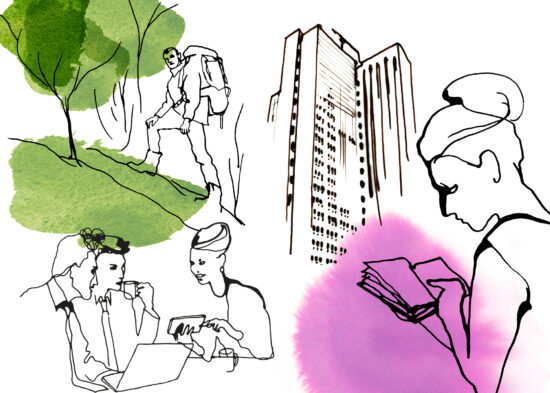Results from the project
Co-designing carbon label interventions in restaurants: insights from a field experiment in a tourism destination
What is the project about?
– We will study what is meant by climate-smart food and drink in the hospitality industry from two perspectives – producers and consumers – and whether and how food choices can affect the industry’s carbon footprint. We will examine what climate-smart means from a destination perspective and study the conditions for labeling, challenges for implementation and the connection to profitability. From the guest’s or visitor’s perspective, we will see what influences what food choices people make and how inclined they are to make those that are more climate friendly.
What benefit does the hospitality industry have from this?
– We know that food consumption contributes greatly to climate change through greenhouse gas emissions. In the western world, about a third of the total emissions can be linked to food, tourism and the hospitality industry globally account for about 8% of the total greenhouse gas emissions. The industry needs to understand its role and how it can adapt to contribute to a reduced carbon footprint. Our hope is to contribute to increased knowledge about the definition of climate-smart and which buttons can be pushed to influence a customer to make choices that create a low carbon footprint.
What are you going to do?
– Our plan is to do experiments in the field. We collaborate with two restaurants within Destination Sälenfjällen that will function as study objects. The experiment is divided into two periods. In the first, the range of climate-smart food on the menu is smaller, in the second, the climate-labeled dishes are more. The staff will have different instructions during each period, through which we can examine the customers’ tendency to choose dishes depending on what information they receive.
– In the first part of the project, we want to work out what climate-smart actually means and make calculations about the carbon footprint for different raw materials and evaluate both production and transport. It can be a jungle to understand and difficult for both companies and consumers to make conscious choices.
What will be your biggest challenges?
– It is obviously a pandemic and what the situation is at the individual companies. We will study companies that have been hit hard, we must be able to present the benefits of participating and bring about good cooperation and mutual trust. Another challenge is the design of the experiment itself.
Is there previous research and knowledge about this?
– There are many studies and a big debate about what is meant by climate-smart, but none which has fully looked at food connected to where you are as a tourist or visitor in a more distant destination, which often lacks a local food supply.
What result do you hope for?
– We hope to be able to produce keywords that can be used to influence and change a customer’s food choices. It could be used, for example, for innovative menu design. We also want to contribute to new insights into the importance of more climate-friendly food choices in reducing the industry’s overall carbon footprint while maintaining (or even increasing) profitability.
About the researchers
Tobias Heldt, project manager, associate professor of tourism science at Dalarna University
Marie Nowak, doctoral student in tourism science, Dalarna University
Maria Lexhagen, associate professor of tourism science, Mid Sweden University and
Jonas Nordström, associate professor of economics at Lund University, researcher at the Institute for Food Economics Analysis, AgriFood and visiting professor at Dalarna University
Project facts
Project
Reduced carbon footprint of winter tourism destinations by "boosting" sustainable food choices
Research organization
Dalarna University
Project Manager
Tobias Heldt
Members
Marie Nowak, Maria Lexhagen, Jonas Nordström
Period
Jan. 2021 – Dec. 2022
Amount
SEK 1,000,000

